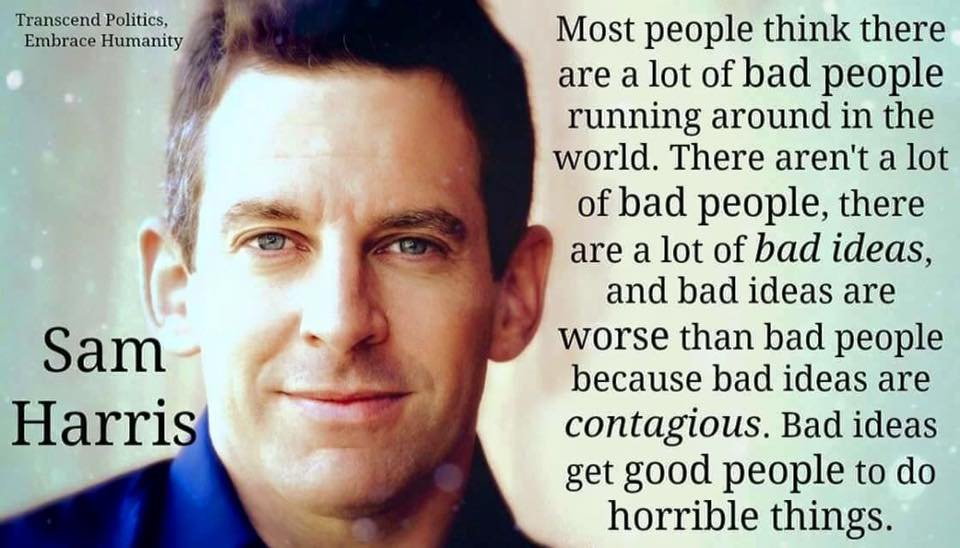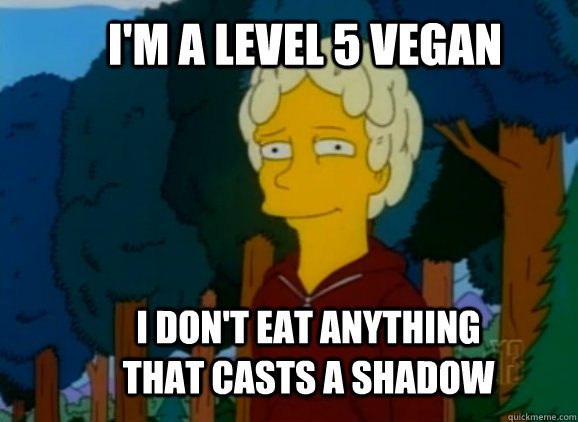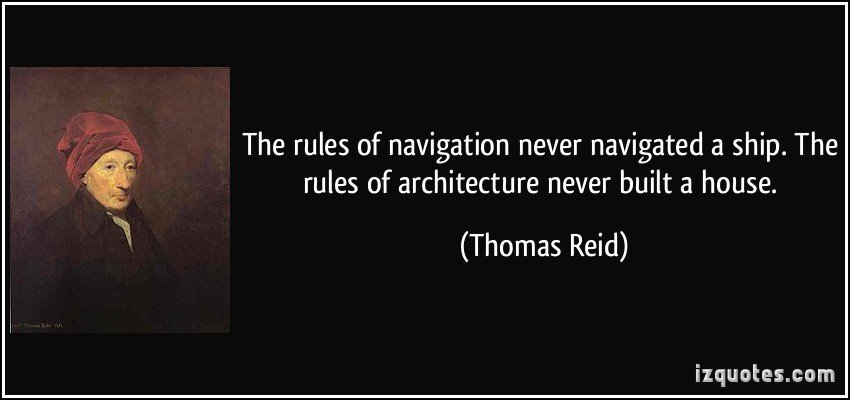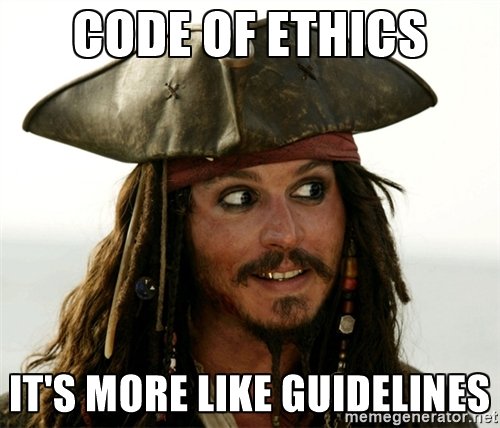
In my post on Science, Ethics, & Individual Sovereignty, I made the case for a Darwinian natural law theory of ethics. I argued that humans share a common human nature with other members of the human species. Natural selection favored those traits and features of humankind that happened to help us survive. Human sensibility has been refined through the process of natural selection, so that it is somewhat correct for humans to look at themselves as unique. Engrained in human nature are two key sensibilities: sensus communis ("common sense") and the moral sentiments. There is a common sense, or basic ability to perceive, understand, and judge things. This "sense" or "sensibility" is common to the entire human species. It is engrained in human nature. In addition to this rational sensibility is a moral sensibility. There are also basic moral sentiments engrained in human nature. Humans are biologically wired to sympathize with others. We dislike suffering and feel sad, guilty, or distraught when we see others suffering. This causes us to desire the maximization of happiness and well-being for ourselves and for others. All of these rational and moral sensibilities are rooted in human nature. (Cf. Thomas Reid on "common sense" and Adam Smith on "moral sentiments")
We all share basic moral sentiments because they are part of our human nature that is biologically determined. We cannot help but share these moral sentiments. It is not the case that there is some categorical imperative that says we ought to desire the well-being of others. The fact is that the moral sentiments are biologically determined and engrained in our common human nature. As humans, we cannot help but value the things that we value as humans. Against ethics, one might say, "Why should I sympathize?" Well, this meta-ethical question is largely irrelevant the moment that you stop to consider that everyone does sympathize with others. So, we can start with these basic rational and moral sentiments that we all share, and we can devise a theory of ethics that is "objective" and universal (or, at least, universal relative to the human species). We value our own lives, we value our own happiness, and we value the lives and happiness of others because we naturally sympathize with others. Humans are biologically wired to favor a world with the greatest amount of happiness and least amount of suffering for all.
Now, I have so far just established that there are basic moral sentiments and basic rational sentiments (common sense) engrained in human nature. These sentiments are determined by biology and are inherited from previous generations. I have a Darwinian natural law theory of ethics. The logical and moral sentiments that we have were chosen by natural selection. Specimens with illogical sentiments, which perceived the world inaccurately, were not as good at surviving, so their genes were not passed on. The specimen that lacked depth perception and thought that the cliff was just a small drop or step down was not able to reproduce since it fell to its death at an early age. A primitive ape that lacked social sensibility might have stolen food from its fellows and refused to share; the other apes would have refused to associate with that ape, preventing him from being able to reproduce, and they may even have attacked or killed him for being unfair. The impulse towards mutual aid and socially acceptable behavior is a product of evolution and is engrained in our nature.

Hedonistic Utilitarianism vs. Preference Utilitarianism
There are two credible theories of ethics that we should look at now: hedonistic utilitarianism and preference utilitarianism. Hedonistic utilitarianism focuses on pleasure/happiness vs. pain/suffering. This sort of approach to ethics would define pleasure and happiness as "the good" and pain and suffering as "the bad." A world in which there is the greatest possible happiness for all and no suffering at all is obviously the best possible world. A world in which there is the most possible suffering for everyone is obviously the worst possible world. The goal of ethics should, therefore, be to attempt to maximize happiness/pleasure and minimize pain/suffering. Preference utilitarianism, on the other hand, focuses on an individual’s wants and desires. The satisfaction of one's wants, desires, and preferences is "the good." A world in which all of our desires are met is obviously the best possible world. I, personally, do not think that we have to pick between these approaches. The notion that "the good" is a single monolithic thing leads the proponents of ethical theories to advocate one approach over the other. I see a pleasure-preference entanglement. Both of these theories, if pressed hard enough, reduces to the other because pleasure and preference are intrinsically connected. What is the difference between pleasure and pain? Well, pleasure refers to sensations that we like and desire, whereas pain refers to sensations that we dislike. A stubbed toe and an orgasm both result in intense physical sensations. The reason for labeling one of them painful and the other pleasureful is largely a matter of preference. At the same time, why do we prefer one thing to another? Because, in some sense, one thing will make us happier than another. At the same time, to say that x will make me happier than y is merely to state my preference. Preference and hedonic well-being are entangled. Thus, a coherent theory of ethics will have to be a synthesis of hedonistic utilitarianism and preference utilitarianism. The idea that "the good" has to be either pleasure or desire/preference is mistaken. There does not have to be a singular good. Experiencing pleasure and fulfilling one's desires can both be regarded as "good." The choice between hedonistic utilitarianism and preference utilitarianism is largely a false dilemma.
Pleasures and desires/preferences are both things that we value. These are somewhat distinct but also related. And these different types of values can be ranked in a hierarchy. For instance, I want pizza because eating pizza gives me pleasure, I want to have sex because sex makes me happy, and I want future generations to live in a world that isn't desolated by pollution and global warming. The first two items are hedonistic values, but the third is a preference value. An ecologically sound world for future generations isn't actually going to bring me any pleasure, since I won't be around to experience it. These are different sorts of values, but there is no reason that they cannot be placed alongside one another within my hierarchy of values.
Every valuation is a statement of preference and every preference is an estimation of hedonic utility. To say that I value such-is-such is merely to state my preference. My reason for preferring such-and-such entails an assumption that such-and-such will have a hedonic utility (i.e. it will increase happiness or minimize suffering in some way). The person who engages in self-harm is no exception. They prefer physical pain because physical suffering masks or reduces psychological suffering. A masochist is also no exception to the rule. They prefer physical or psychological suffering in a particular context because it increases their sexual pleasure. They rank sexual gratification that entails suffering as a higher pleasure than physical comfort in the short run. They are simply ranking their values and choosing one over another.
Thus, I have a hedonistic-preference utilitarian perspective on ethics. I don't think there is much point in bickering about whether pleasure or preference is the basis of ethics. They both are.

Veganism
I believe that the ethical superiority of veganism logically follows from the theory of ethics that I have espoused. We are born with natural moral sentiments. We dislike suffering and we sympathize with other creatures that suffer. Our sympathy is not limited to other humans. For instance, almost all humans get upset if they see an animal being abused. This is why we despise cock fighting and dog fighting. Cruelty to animals is something that we have a natural aversion to. When we eat meat, we are going against our own values. If we hunt to survive, we must suppress our natural repulsion upon seeing an animal hurt. We must suppress our moral instincts. Historically, at various points in time, it was necessary for our ancestors to eat meat in order to survive. When eating meat was necessary for survival, it made sense for our ancestors to rank their desire for self-preservation and survival above their desire to minimize suffering for all living creatures, and so they reached the logical imperative that eating meat was the right thing to do (not that they consciously thought this through, of course, because their judgment was largely subconscious).
Today, especially in the developed world, we do not need to eat meat in order to survive. There is no logical reason for us to say that killing animals is the best course of action. Given that we value the well-being of all living creatures and we don't like for animals to suffer, it follows that we ought to do whatever we can to minimize the suffering of animals. Thus, killing animals for food is no longer justifiable. Consequently, we are now seeing many people turn towards vegetarianism and veganism. Vegan is "the beginning and end of vegetarian (veg-etari-an)." The vegan carries the cause of animal rights to its logical conclusion. We value the happiness of animals. We like to see animals being happy. We dislike it when they suffer. It follows that we ought not to harm them in order to kill them and eat them. It isn't their death in itself that we see as the great tragedy, but their suffering. It follows that we ought not to exploit them for other reasons. Keeping livestock for the sake of dairy and egg production causes a great deal of suffering for animals. (This is a fact, although I recognize that it may not be obvious to the reader.) The moral imperative, given that we want to maximize the well-being of animals, is that we ought not to consume meat or animal products.
Furthermore, we must recognize that animals have a desire to be free. If this were not the case, no animal would every try to escape from captivity. And the desire for freedom indicates the animal's own estimation that freedom would make it happier. Of course, we also might be in a position of possessing greater knowledge. I might know that my chickens are not capable of surviving on their own and that coyotes would eat them if I set them free. My moral obligation, then, seems to be to care for them and try to make them comfortable. I should also try to make them as free as possible. At the same time, I ought not to be bringing more animals into captivity if their captivity is unnecessary and would increase their suffering or make them unhappy.
I believe there are three primary factors that account for why people still consume meat: habit, desensitization, and mediation. By the time that eating meat was no longer necessary, it had already become a habit engrained in human culture. Our parents ate meat and fed us meat from a very early age. The consumption of meat was culturally normalized. This normalization and habitual consumption of meat led to desensitization. For a long time, men would take their children hunting with them. When a person sees animals being killed from an early age, they become desensitized and feel less compassion for the suffering animals. Very rarely do people ever become completely desensitized. Usually, a hunter will still feel guilt and discomfort if he injures his prey and causes it to suffer. The hunter would prefer that the target die instantly. Children can also be desensitized on farms. They may witness the slaughtering of livestock from an early age. In modern times, hunting and raising livestock is generally not necessary for survival. Most people probably couldn't stomach the violence of the hunt or the slaughterhouse. The masses don't have the desensitization that comes from directly participating in the kill. In order to perpetuate the consumption of meat in our society today, the kill has to be mediated. There are distant slaughterhouses that kill the animals and process the meat behind closed doors, so that we don't have to witness the suffering caused by our diet. Like foreign wars and poverty in third-world countries, the suffering that we don't see doesn't put a heavy burden on our consciences. But “out of sight, out of mind” doesn't remove the moral imperative.
Vagueries Like Voting
I've been quite frustrated recently by liberals who have said that it is "quite obvious" that people ought to have voted for Hillary Clinton. As I argued in Science, Ethics, & Individual Sovereignty, facts and values are entangled. The right course of action in any given situation depends largely upon the facts. I have a consequentialist theory of ethics in which all moral imperatives can be reduced to hypothetical imperatives. The moral imperative will generally follow this basic format, or something like it: given moral sentiments and our desire to maximize well-being (x), and the fact that such-and-such would maximize well-being (y), it logically follows that you ought to do so-and-so (z). In the hypothetical imperative, there are two premises. The first premise (x) refers to our desires or what we want, whereas the second premise (y) refers to the relevant facts regarding the scenario. There may be any number of x premises and y premises because there is a multitude of preferences and "goods" in one's hierarchy of values as well as a multitude of relevant facts in relation to any given ethical concern. When one is making an ethical judgement, their ability to reach the most rational conclusion regarding the appropriate course of action to take is contingent upon their knowledge of the facts. If one does not know all of the relevant facts, then they may choose the wrong course of action. With complex issues like voting, it is impossible to know all of the facts that one needs to know in order to make a fully informed decision. Two people analyzing the same ethical conundrum may reach drastically different conclusions because they have very different knowledge sets. Thus, one person could choose to vote Jill Stein, another could vote Gary Johnson, and another could vote Hillary Clinton, and yet all three may have made the best possible judgement given the amount of information available to them and their individual understanding/beliefs about the relevant facts. The Hillary supporter, for instance, might "know" that it is statistically impossible for Jill Stein to win and that a vote for Stein would work in favor of Trump. However, the Jill Stein supporter might "know" that Hillary Clinton and Donald Trump are in cahoots. The Johnson supporter might "know" that an austro-libertarian approach to the economy is the only thing that can prevent an economic collapse. Another person may "know" that the votes won't be counted anyways. Now, of course, only one of them can be right. It is also possible that all of them could be wrong. There could be some unknowable fact (e.g. that all of the candidates are in cahoots, that one candidate will develop a brain tumor that will make them go insane while in office, etc.) that would fundamentally change the imperative. However, they can only make their judgement based upon the facts available to them or upon their estimation of what they believe the facts to be. Making the correct judgement requires accurate knowledge about all the relevant facts. With a scenario like the recent election, it is utterly impossible for anyone to know all the relevant facts. The only thing that one can do is attempt to obtain all the relevant information and try to make an informed decision based on the limited information available. When it comes to something as complex as the recent election, no person could possibly know the right thing to do.
It is impossible to be a rational voter in a national election. All the relevant information cannot possibly be known by one single individual. There is a sort of ethical calculation problem here. No one can ever cast a fully informed vote for a presidential candidate. I think this is a good reason to question whether the office of the presidency ought to be abolished. Perhaps it is not such a good idea to give so much power to a person that has to be chosen in such a way that it renders the decision-making process irrational. On the one hand, the president holds so much power that we all need to have a say in who occupies the office. On the other, it's impossible for us to make a well-informed decision about the issue of who to elect. It seems to me that perhaps decentralizing and localizing politics would be a better option. If the candidates are members of your local community who you have interacted with personally, it's much easier to make a sound judgement about their character. If they are running for an office with relatively few powers, then there is less relevant information that you need to analyze.

If Ethics is Universal, Why Do Some People Behave Unethically?
Granted that we all share the basic moral sentiments and rational sentiments, and that this theory of ethics is universally applicable among humans, why do some people do things that are unethical? There are several reason that people may behave unethically. The first, and perhaps most obvious, reason is that they may be mistaken about the facts. If they have false beliefs, then the conclusion they draw from their analysis of the situation will be wrong. While ethics is universal, people can reach the wrong conclusion in ethical analysis. This is like a student in mathematics getting the wrong answer to a problem. It is not that the laws of mathematics vary, but rather that some students are mistaken in their application of them. Furthermore, a person may act upon irrational impulses, emotions, or compulsions. A person may know that such-and-such is the most ethical and appropriate course of action and still choose to act otherwise. Human action is not always rational. A person that is addicted to alcohol may know that drinking is not the best option, and they may not desire to drink at all, but their chemical addiction may compel them to indulge in their addictive behavior regardless. A person may skip ethical analysis altogether and react automatically as an emotional response to some situation. This is the reason that the study of ethics is important. People need to be trained on the subject so that they can better analyze situations and facts in order to make more rational judgements. If we understand the rational deliberative process of ethical decision-making, we will be more apt to give a full analysis and reach the most logical conclusion about the appropriate course of action when we are confronted with difficult real-world scenarios. And since all moral imperatives are hypothetical imperatives that are contingent on facts, we also need to be educated in the scientific method and the epistemology of science. In order to make sound judgements about ethics, we must make sound judgements about facts. So ethical analyses must be informed by science in order for us to reach the right conclusions.

